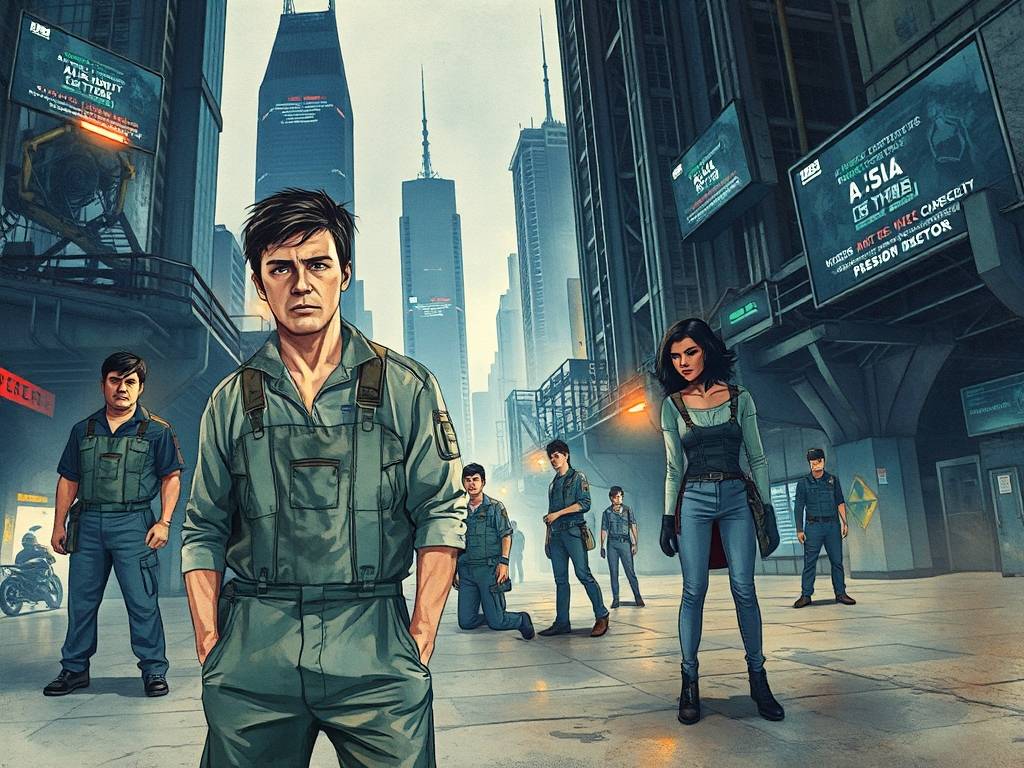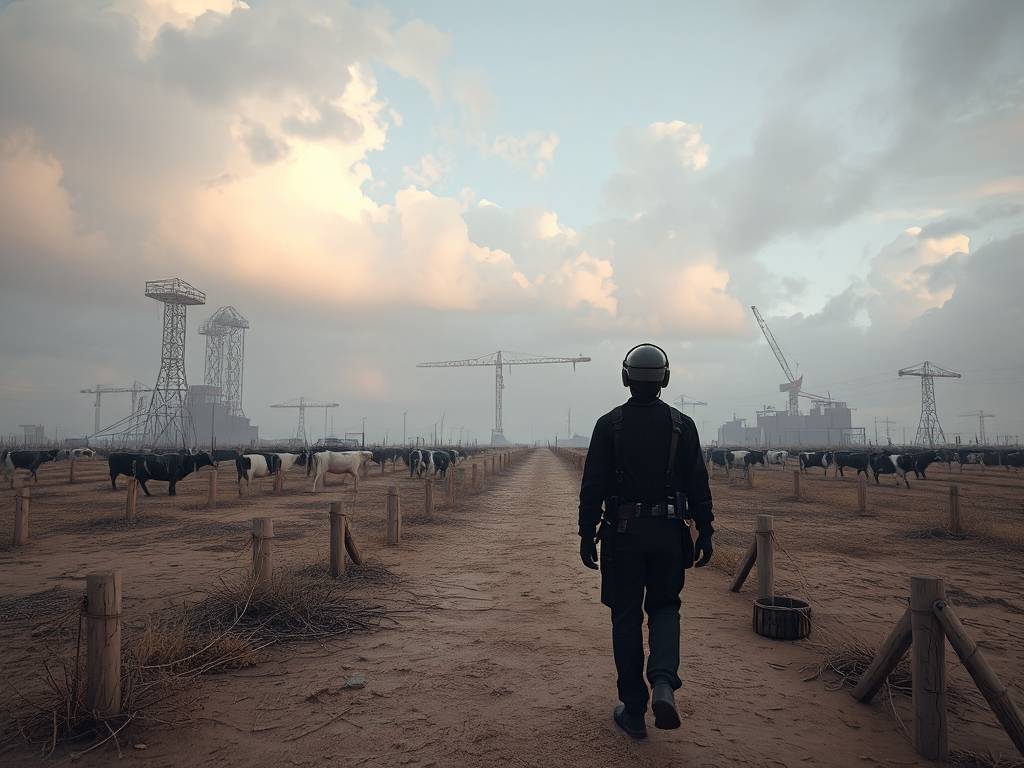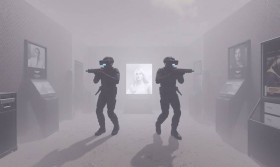The Iron Grip: Inside the "Oppressive Missions" DLC for Dystopia Simulator VR
The virtual reality landscape is one of endless possibility, a realm where we can be heroes, artists, or explorers. But a darker corner of the metaverse has been cultivated by the controversial yet critically acclaimed experience, Dystopia Simulator VR. Rather than offering escape, it holds up a stark, unforgiving mirror to the mechanisms of control that pervade our society. Its latest expansion, the "Oppressive Missions" DLC, is not merely new content; it is a profound and deeply unsettling evolution of the medium, transforming players from passive observers into active, complicit agents of the regime.
Upon loading the DLC, the familiar, bleak grey palette of the base game’s central plaza is overlaid with new directives. A new terminal, glowing with urgent crimson light, appears in your virtual apartment—the Ministry of Compliance’s Direct Action Link. This is your new assignment desk. The genius, and horror, of the "Oppressive Missions" DLC is its fundamental shift in player agency. You are no longer a citizen trying to survive the system; you are the system’s instrument.

The Mechanics of Complicity
The DLC introduces a suite of new gameplay mechanics designed to evoke discomfort and moral friction. The first mission, "Re-education Patrol," equips you with a non-lethal compliance prod and a list of "social deviants"— citizens detected murmuring dissent or failing to display sufficient enthusiasm for the state-sponsored propaganda broadcasts. Your task is not to arrest them, but to "correct" them. The VR controllers vibrate with a distressing thrum as you make contact, and the audio design is brutally intimate: you hear the sharp intake of breath, the stifled gasp of pain, the quiet whimper of submission. The game doesn’t reward you with points for brutality, but with "Efficiency Quotient," which unlocks further missions. The reward is access to deeper horror.
Another mission, "Dataveillance," tasks you with infiltrating a residential block’s network. Using a complex in-game interface, you must sift through the digital lives of citizens—reading private messages, analyzing purchase histories, and reviewing audio logs captured by state-mandated home assistants. You are looking for patterns of non-conformity. The tension is palpable as you flag a family for investigation based on nothing more than a recipe for homemade bread (a sign of distrust in state nutrient paste) and a private joke about the city’s Architect. You never see the consequences of your report, but a later news broadcast mentions "anti-state elements" being neutralized in that sector. The game masterfully makes your own imagination its greatest weapon.
The Psychological Weight of Participation
Where the base game was about the psychology of the oppressed, the DLC is about the psychology of the oppressor. It explores the banality of evil through ergonomics. The act of physically performing these tasks in VR—reaching out to zap someone, manually scrolling through illicit data, using your voice to recite loyalty oaths to advance—bypasses the intellectual distance a traditional screen provides. Your body is engaged in the atrocity, creating muscle memory of compliance. This is the DLC’s most groundbreaking and controversial achievement.

The narrative arc of the DLC is one of chilling normalization. Early missions are accompanied by a pounding heart and a sense of unease. But as you progress, the missions become routine. The visceral feedback from the controller becomes just feedback, the cries of citizens become ambient noise. The game tracks subtle metrics: your hesitation time before administering a "correction" decreases, your data-sifting speed increases. The most powerful moment comes not from a scripted event, but from this personal realization: you have become efficient. You have stopped feeling. You are a good citizen of the regime.
Beyond Entertainment: A Virtual Milgram Experiment
The "Oppressive Missions" DLC transcends the boundaries of entertainment. It functions as a interactive socio-psychological study, a modern-day Milgram experiment conducted in the safety of a virtual space. It forces players to confront uncomfortable questions: How easily can we be made to follow orders? At what point does duty override morality? What does it feel like to wield power without accountability?
The DLC does not offer judgment or a easy way out. There is no "secret rebellion" path hidden within these missions. To play is to participate. The only opt-out is to quit the game entirely, a meta-choice that powerfully mirrors real-world dilemmas of complicity and resistance.
Dystopia Simulator VR: Oppressive Missions is not fun. It is not meant to be. It is a vital, brutal, and essential piece of interactive art. It uses the immersive power of VR not for escapism, but for confrontation—a confrontation with the systems that govern our lives and, most disturbingly, a confrontation with ourselves. It leaves you with a lingering unease, a phantom sensation in your hand that held the compliance prod, and a terrifying empathy for both the watched and the watchers. In holding a virtual mirror to our capacity for obedience, it delivers the most important warning a dystopia can offer: the machine of oppression is nothing without the people willing to operate it.


















